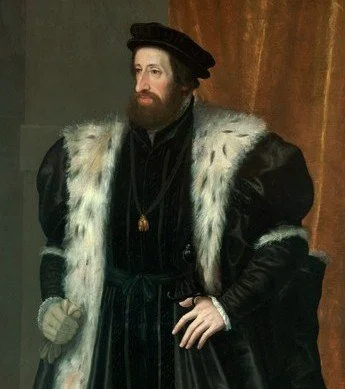After the death of Louie II, the Kingdom of Bohemia needed a new king, of which Ferdinand I took up the mantle. As the King of Bohemia, he inherited many issues surrounding the kingdom, including the encroaching Ottoman Empire, the political tug of war between the Bohemian diet members, and the religious strife between Protestants and Catholics. During his time, Ferdinand I delicately wielded his influence and power as the King of Bohemia, eventually becoming the Holy Roman Emperor.
History of Czech Poetry Works
The history of Czech poetry goes as far back as the 9th century. It begins with the works of Saints Cyril and Methodius, who translated texts in the bible from Greek to Old Church Slavic, a language in which the first Czech poems were written. Since then, Czech poetry continued to flourish, even when the chosen languages of the Czechs continued to face challenges throughout the centuries. The apparent culmination of Czech poetic culture is of a poem, Máj, written by Karel Hynek Mácha.
The Hussite Reformation: Revolution and Wars
With Jan Hus’s execution at the Council of Constance in 1415, the Church and Holy Roman Emperor believed that the issues of Bohemian heresy had been successfully resolved. However, Bohemia erupted into protest and revolt in response to the death of Jan Hus. Expelling the Catholic priests and throwing the city council members from the New Town Hall windows, the Hussites of Bohemia refused to accept the authority of the Church or their king. To quell this revolution, Holy Emperor Sigismund and Pope Martin V launched an invasion and five crusades against Hussite Bohemia, calling upon the Christian world to lend them aid. However, led by a man named Jan Žižka and later Prokop the Great, the Hussites would not be so easily defeated.
History of Karlštejn
Karlštejn Castle was built by Bohemian King and Holy Roman Emperor Charles IV to house holy relics and the crowns of the kingdom and empire. Karlštejn Castle consists of three different levels, those being the Imperial Palace, the Marian Tower, and the Great Tower. Throughout the castle, Karlštejn housed many jewels and precious stones, symbols of royal authority and legitimate monarchy. Karlštejn Castle remains a cultural, historical, and architectural icon in central Europe and the Czech Republic.
The Hussite Reformation: Life of Jan Hus and the Church
In 1414, a Czech theologian named Jan Hus was called before the Council of Constance for heresy against the Catholic Church and Pope. Jan Hus had preached about the need to reform the corruption within the Church, desiring to adhere more to a more communal Christianity that he believed the New Testament spoke of, and for that he had been excommunicated numerous times. His life up to this point set the groundwork for the eventual history of the Catholic Church and the Holy Roman Empire to change forever.
Oldřich Kulhánek and the Czech Koruna
Oldřich Kulhánek was a Czech artist and critic of the Communist Regime best known for his work on designing the current Czech banknotes. His career began in 1958 at the Academy of Arts, Architecture and Design in Prague. During his young life, his politically motivated art would get him arrested and the art almost destroyed since he negatively portrayed Communist leaders. After the collapse of the Soviet Union, Oldřich Kulhánek was once again free to express his views through his art and was tasked with designing the bills of the Czech Koruna.
The Bohemian Revolt: Defenestration and War
The decision in establishing an emperor’s successor would lead to a conflict that would spark the Thirty Years’ War. The Bohemian revolt initially started off in favor of the Bohemians, but it damaged diplomacy. Victory in this conflict for either side would hinge on the battle that would take place at White Mountain.
Rudolf II: The Intellectual yet Disastrous Emperor
Rudolf II desired to unify Christendom in the Empire and tried to take a tolerant stance on religious issues. Though he was an ineffectual ruler, he had a love for academics that helped spur the Scientific Revolution. He was known as “the greatest art patron in the world,” and philosophers, painters, alchemists, astronomers, architects, and mathematicians came to Prague to work under his patronage.
Charles IV: King of Bohemia and the "Romans"
Charles IV’s efforts helped to elevate the city of Prague to new heights, establishing it as the intellectual and cultural center of Central Europe. Yet, his reign was marked by political disagreements and failures to centralize the government. One major, yet brief, threat to Charles IV’s authority came from Louis IV, the excommunicated emperor Charles IV replaced. Another major aspect of Charles IV’s authority was the elevation of Prague as a major player on the world stage for centuries to come.
Charles IV and the New Town
For his time in the 14th century, King of Bohemia Charles IV was one of the most progressive rulers in his time. His greatest contribution to Czech culture is his urban plan for Prague, entitled New Town, or Nové Město. He centered the people of the town in his plans and centralized the working class members of society into New Town, which made it a hub for business and merchant activity. His establishment of Charles University also brought about many major institutional changes throughout Bohemia’s history.







